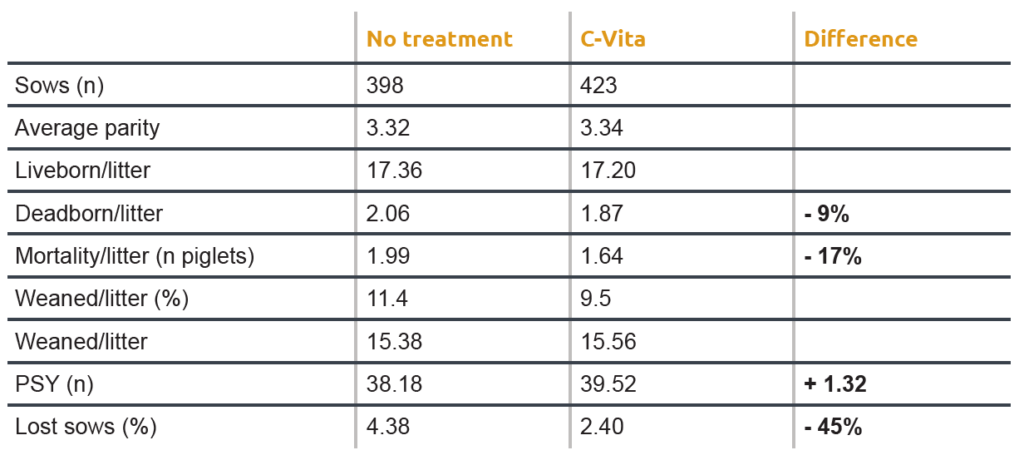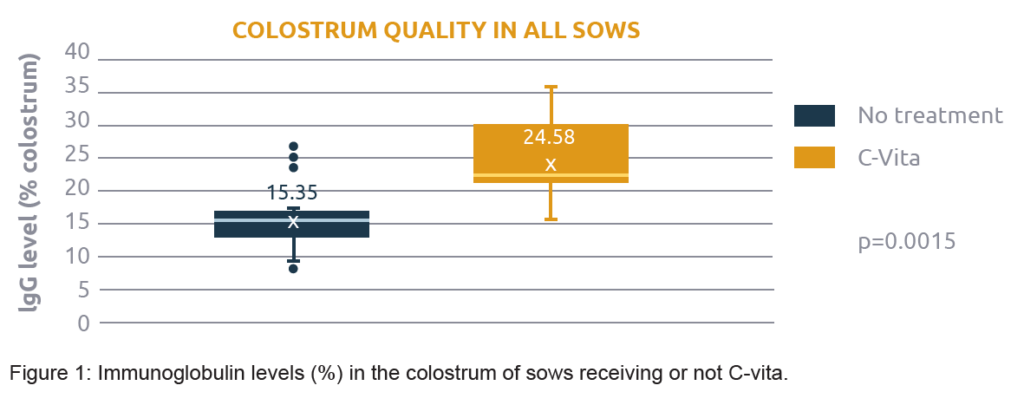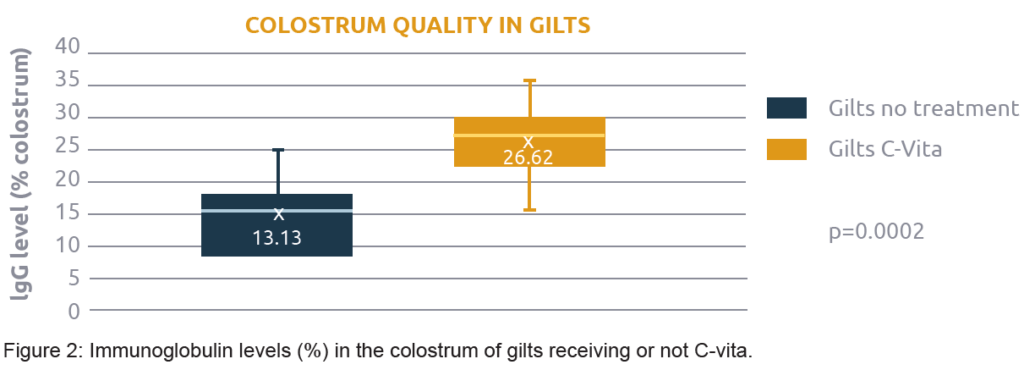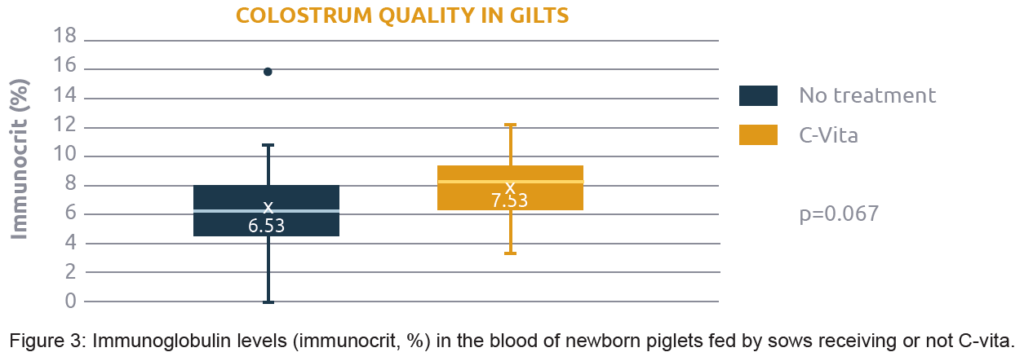Written by Kobe Lannoo, Global lead swine at Agrifirm
Pre-weaning mortality is a significant cause of production loss for pig farmers, impacting profitability and animal welfare. To address this issue, increasing the viability and immune protection of piglets is essential. Agrimprove’s C-Vita offers a unique solution by enhancing colostrum quality at parturition, providing newborn piglets with the necessary immunity support during their early life stages.
The importance of the sow
Colostrum, produced by the sow, provides essential immunity to piglets immediately after birth. However, as litter sizes have increased, the quality and quantity of colostrum have not kept pace (Ngo et al., 2012 JRP). This mismatch results in less colostrum per piglet, leading to higher pre-weaning mortality.
Farmers invest heavily in sow vaccines to protect piglets against various pathogenic threats, such as neonatal diarrhea and PRRS. Yet, the focus on the quality of the sow’s immune response and colostrum production is often overlooked, particularly in gilts.
C-Vita: enhancing sow immunity for piglet survival
Discussions with customers revealed that current strategies often focus on problem-solving rather than prevention. A new approach is required. C-Vita addresses this by boosting the sow’s immunity, thereby increasing piglet survival rates. Its unique medium chain fatty acid (MCFA) composition enhances the sow’s white blood cells, crucial for antibody production, leading to higher quality colostrum. Consequently, using C-Vita results in healthier sows and significantly reduces pre-weaning piglet mortality.
Strategic implementation of C-Vita
To reduce pre-weaning mortality effectively, strategies must start before piglets are born. Therefore, C-Vita is recommended not only during lactation but also at least six weeks before parturition. Evaluations conducted at a high-performing SPF trial facility in Belgium compared production parameters with and without C-Vita (Table 1), showing improvements in sow health (piglets per sow per year [PSY]; percentage of lost sows) and piglet survival rate (dead born; mortality per litter).

Additionally, IgG levels in colostrum were measured, with sows receiving C-Vita showing significantly higher IgG levels compared to the control group (Figure 1). The increase was even more pronounced in gilts (Figure 2).


Higher colostrum quality leads to elevated immunocrit levels in the blood of newborn piglets (Figure 3). Literature indicates a strong correlation between immunocrit levels in newborn piglets and survival rate (Vallet et al., 2012). This trial confirmed a 17% reduction in pre-weaning mortality (Table 1).

Conclusion
Reducing pre-weaning mortality will continue to gain importance in the coming years. By supporting the sow’s natural immune system, C-Vita offers a sustainable solution to enhance farm profitability and animal welfare. With C-Vita, sows provide their piglets with the head start needed for health and performance. Ultimately, increasing the number of liveborn piglets is only beneficial if they survive and thrive.